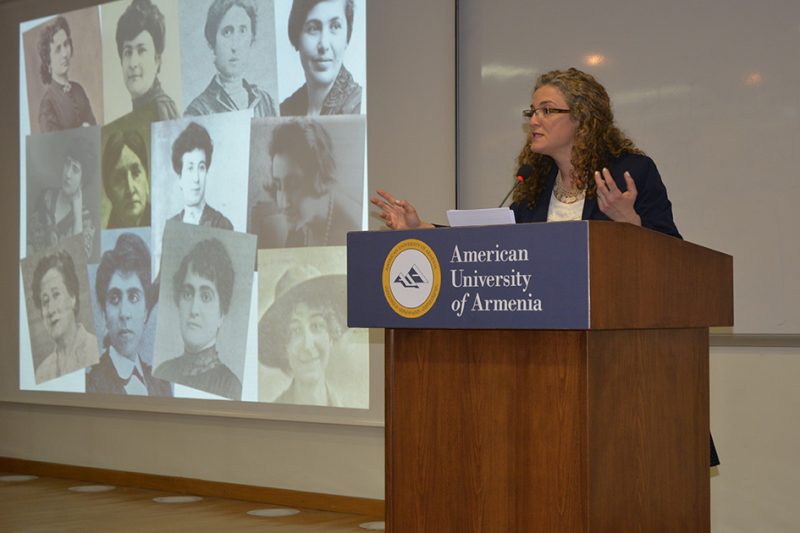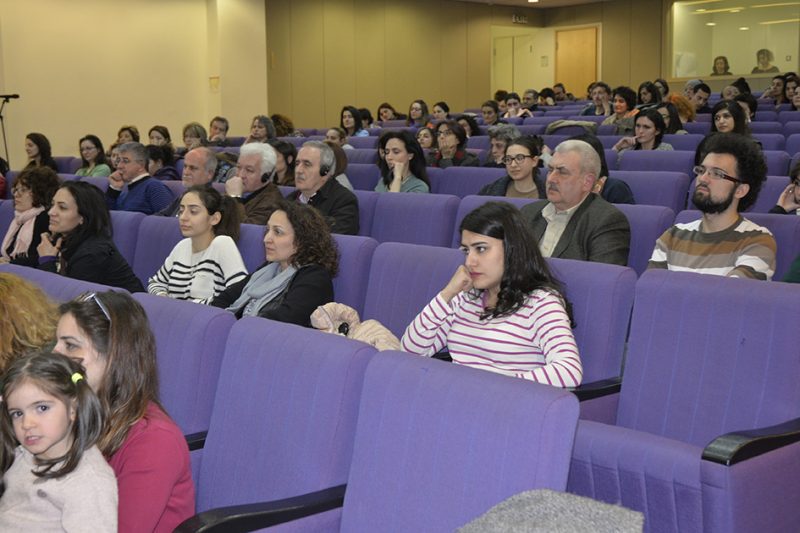
Feminism in Armenian: Producing a Past, Creating a Present
2 min readYEREVAN, Armenia—On March 28, the College of Humanities and Social Sciences (CHSS) of the American University of Armenia (AUA) hosted Dr. Lerna Ekmekcioglu, who addressed current issues regarding the concept of Armenian feminism in the Ottoman and post-Ottoman world.
In discussing the relationship between absences in history and invisibilities in the present, the seminar revolved around a new sourcebook and digital humanities project for which M.I.T. and AUA’s DigiLib are collaborating. The aforementioned book and website aim to archive the history of Western Armenian feminism from its emergence in the early 1860s Istanbul to late 1960s when the longest running feminist journal of the diaspora (Siran Seza’s Yeridasart Hayuhi) folded in Beirut. The forthcoming book includes translations from twelve women who dared to take up their pens and fight for women’s rights.
Dr. Ekmekcioglu is McMillan-Stewart Associate Professor of History at the Massachusetts Institute of Technology where she is also affiliated with the Women and Gender Studies Program. She graduated from Getronagan Armenian High School in Istanbul and majored in Sociology at Bogazici University. She received her Ph.D. at New York University’s joint program in History and Middle Eastern & Islamic Studies in 2008. In addition, she held a one-year Manoogian post-doctoral fellowship at the University of Michigan’s Armenian Studies Program. Dr. Ekmekcioglu is the co-editor of the 2006 book in Turkish titled A Cry for Justice: Five Armenian Feminist Writers from the Ottoman Empire to the Turkish Republic (1862–1933). Her first monograph, Recovering Armenia: The Limits of Belonging in Post-Genocide Turkey, was published by Stanford University Press in 2016.
Founded in 1991, the American University of Armenia (AUA) is a private, independent university located in Yerevan, Armenia and affiliated with the University of California. AUA provides a global education in Armenia and the region, offering high-quality, graduate and undergraduate studies, encouraging civic engagement, and promoting public service and democratic values.


